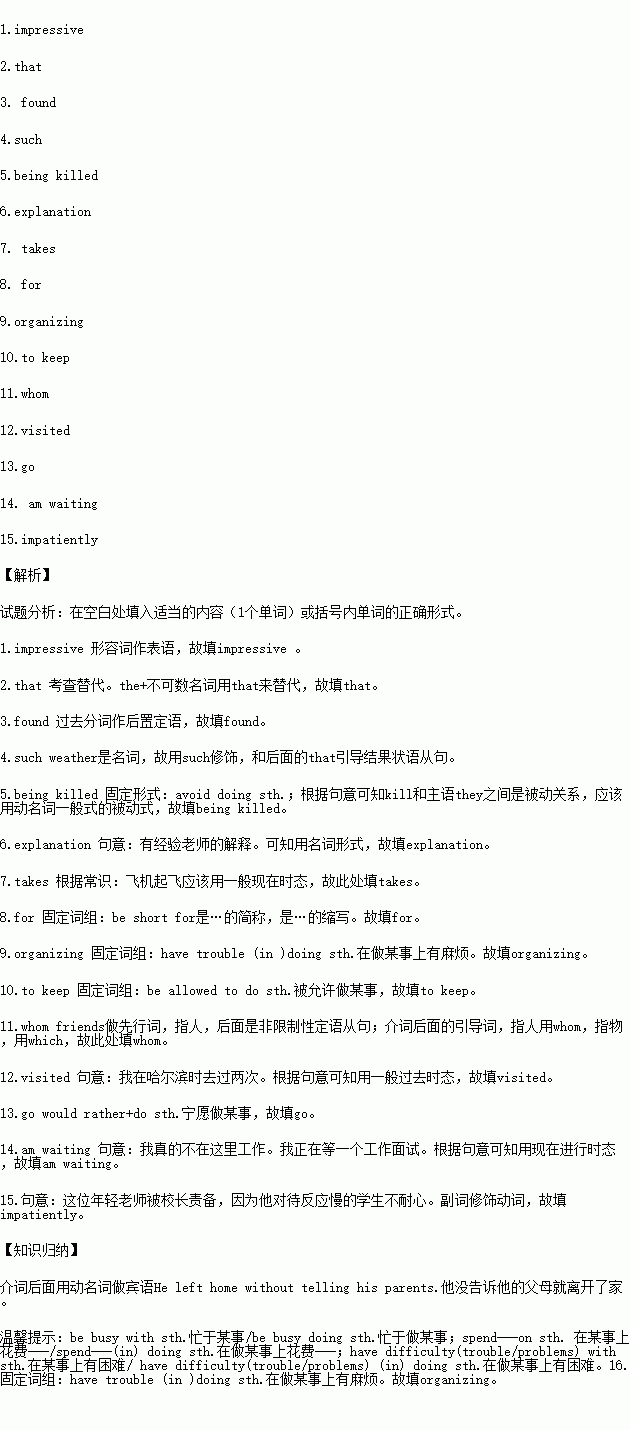题目内容
在空白处填入适当的内容(1个单词)或括号内单词的正确形式。
1.The seven-year-old child’s painting is really _______ (impress).
2.The population of China is larger than ________ of any other country in the world.
3. It is one of the funniest things ________ (find) on the Internet so far this year.
4. It was ______ bad weather that we had to stay indoors all day.
5.They narrowly avoided ________ (kill) in the forest of South America 15 years ago.
6.The experienced teacher’s __________ (explain) to the math problem was clear and to the point.
7. I’ve called the airport and they told me the next flight for Shanghai________ (take) off at 4:05.
8.“VIP” is short______ Very Important Person.
9.You can never imagine what great trouble we have had ________(organize)the Sports Festival successfully.
10.You are not allowed ________ (keep) pets in the apartment.
11. I have made many friends up till now, some of _______ are intelligent and hardworking.
12. -----Have you been to the Sun Island Park?
-----Yes. I_______ (visit) it twice when I was in Harbin.
13. He would rather ________ (go) hungry than beg.
14.I don’t really work here. I ________ (wait) for an interview.
15.The young teacher was scolded by the headmaster because he treated the slow students _______(patient).

